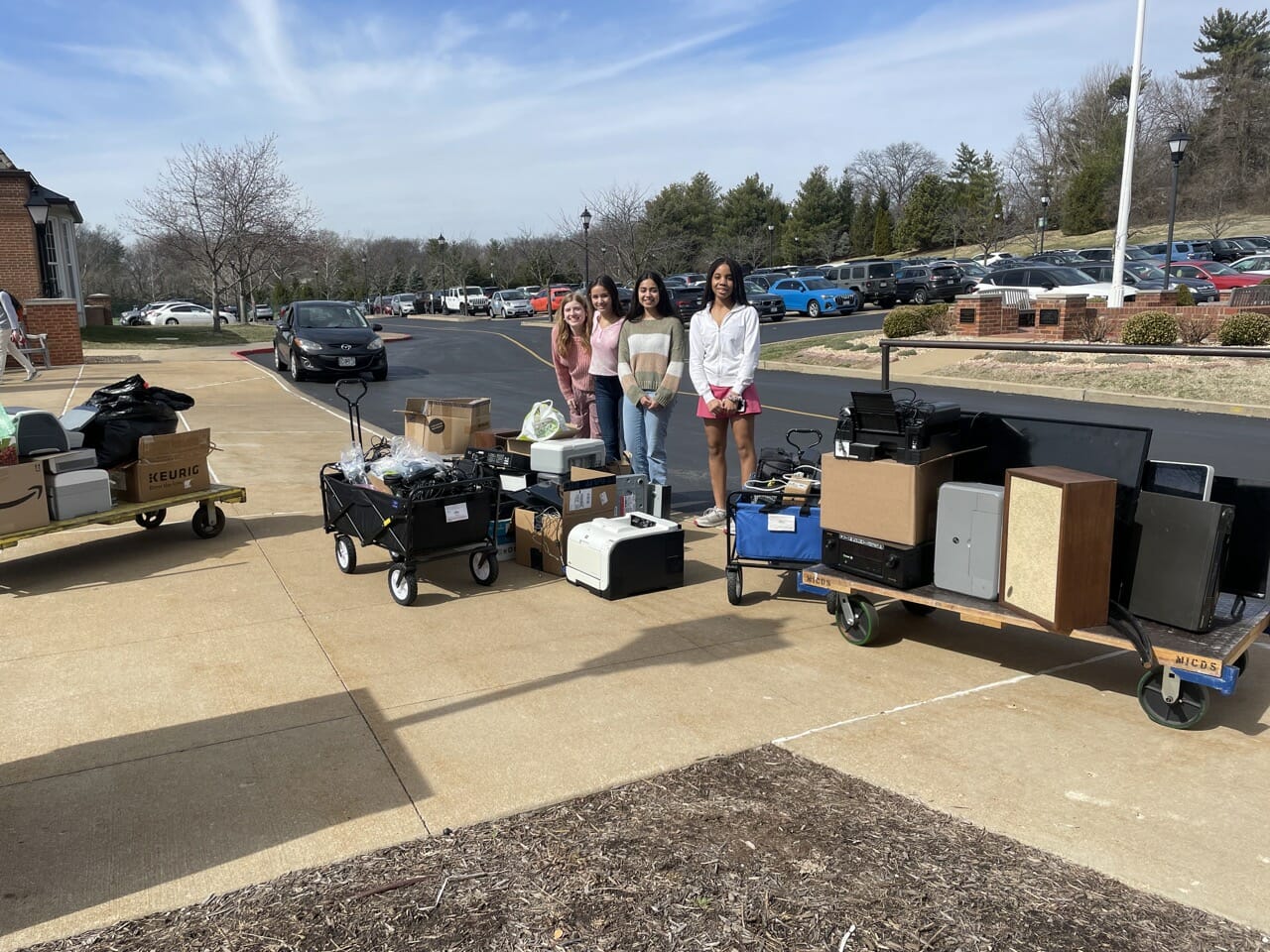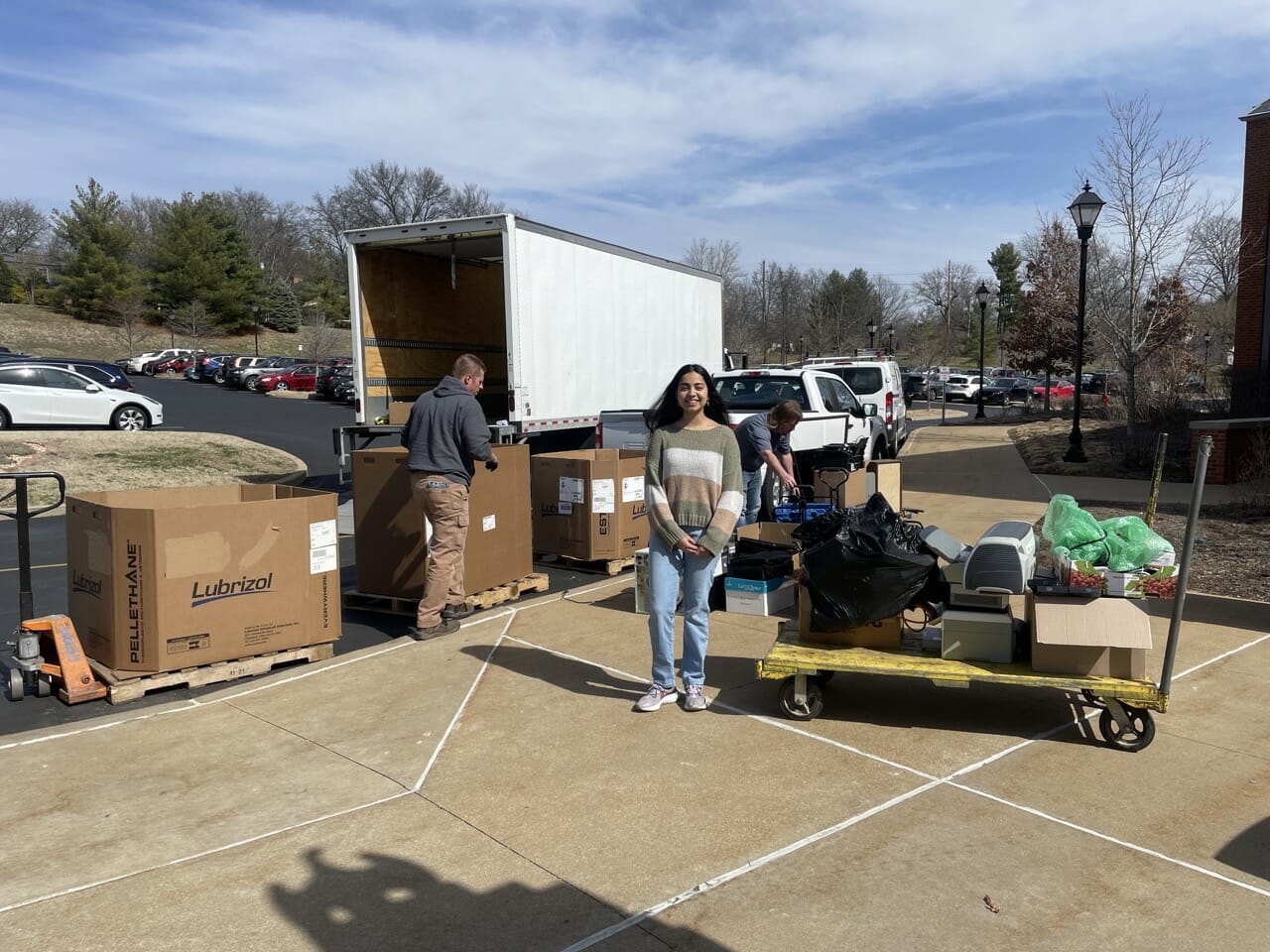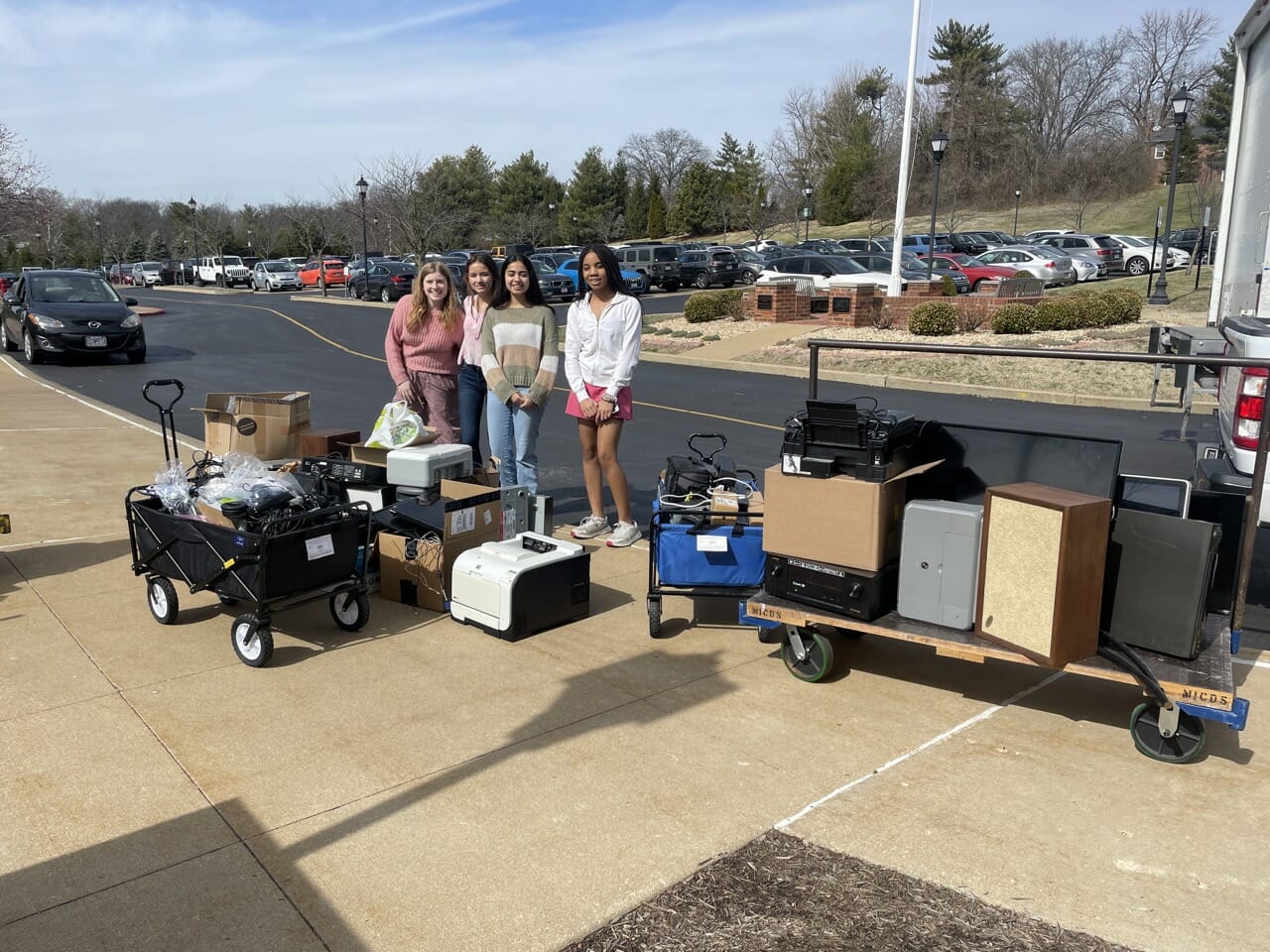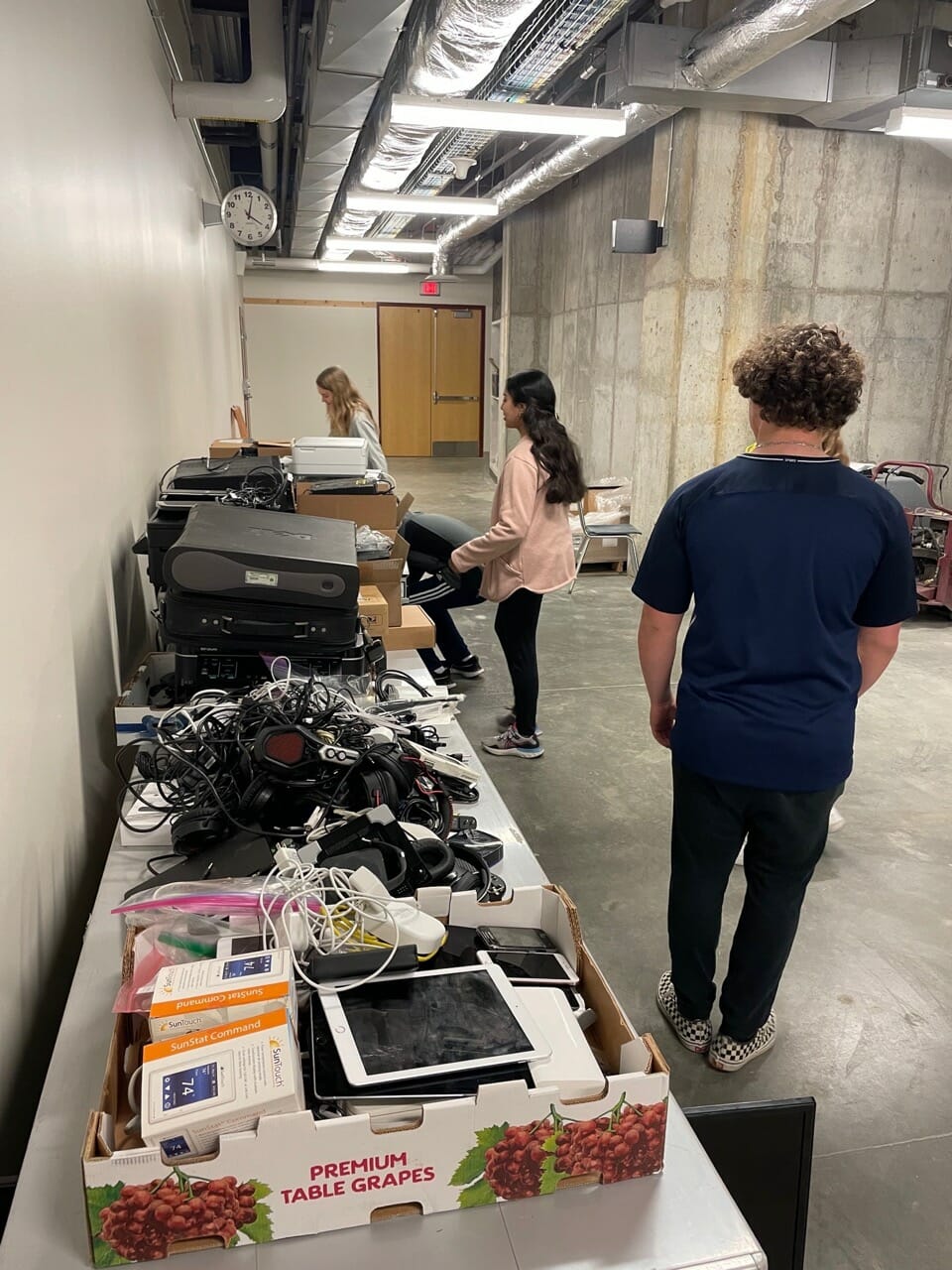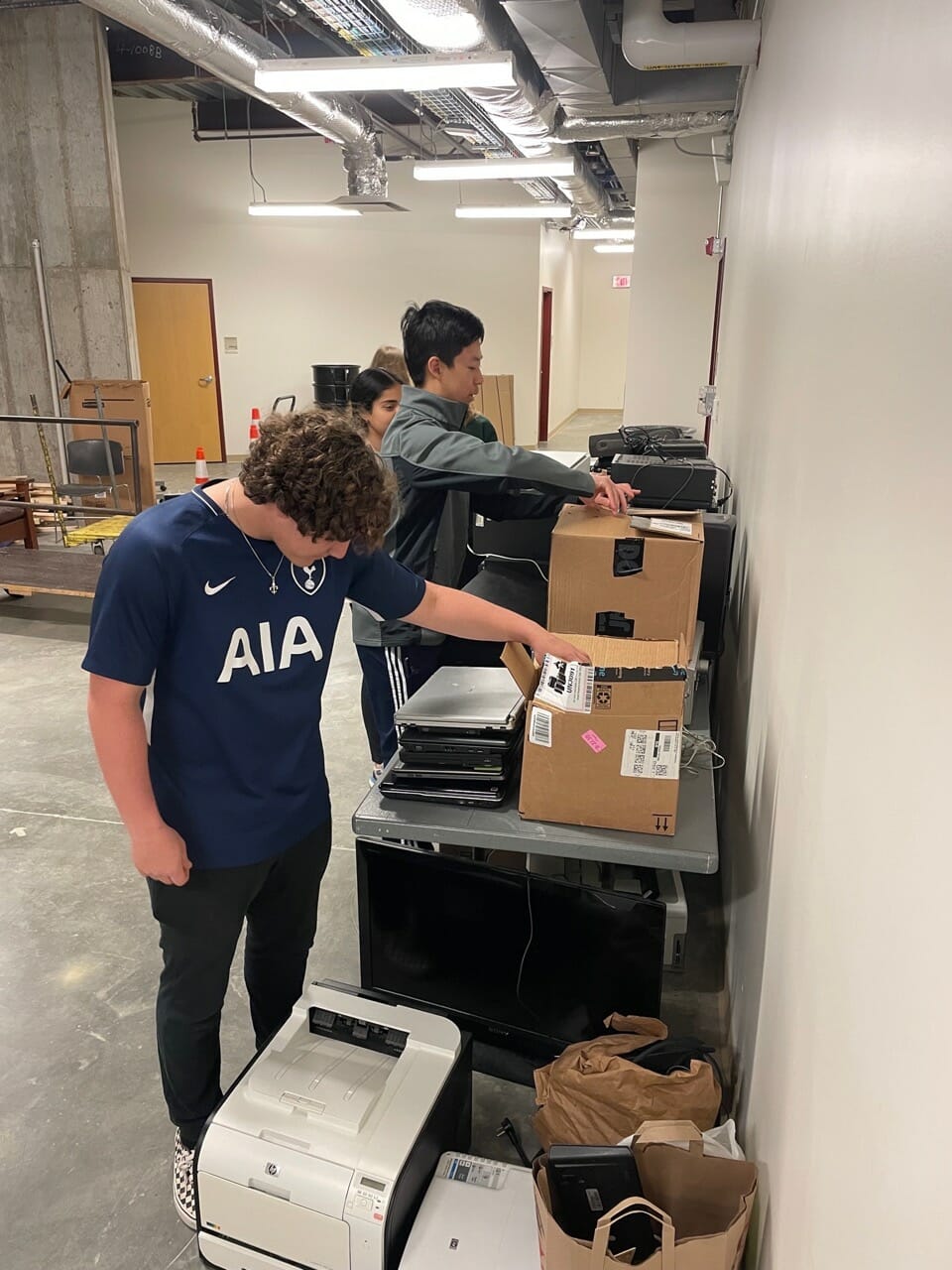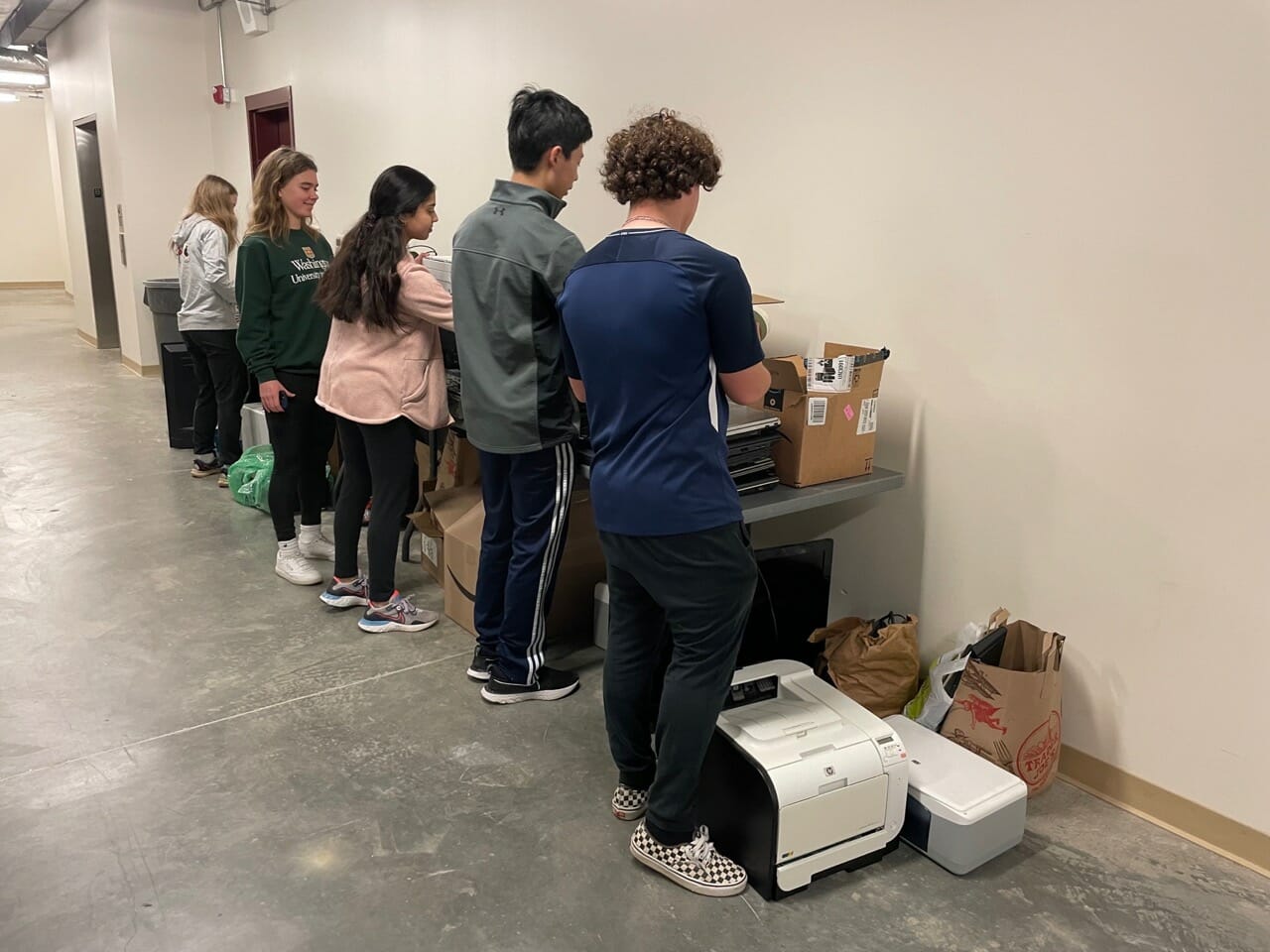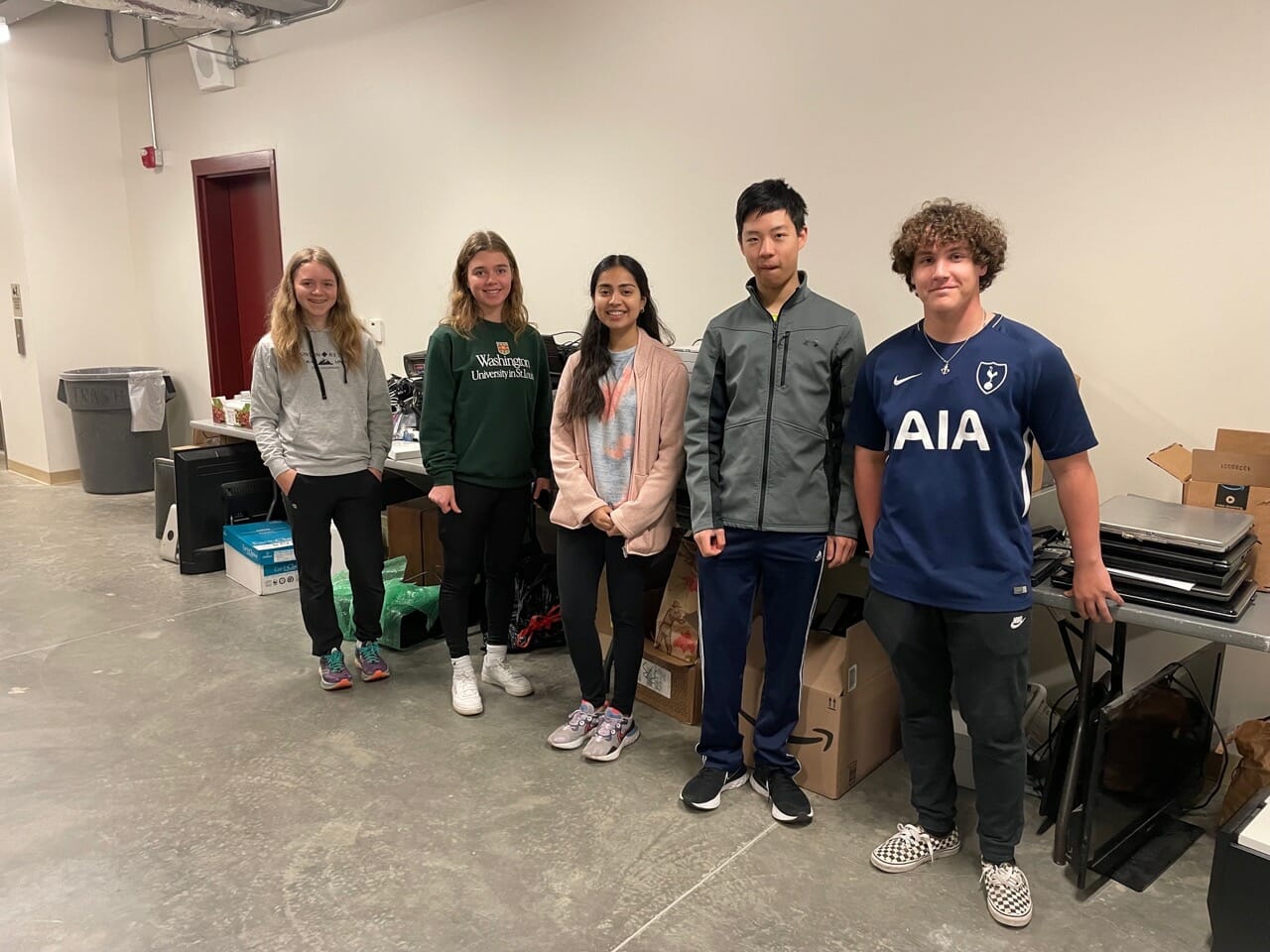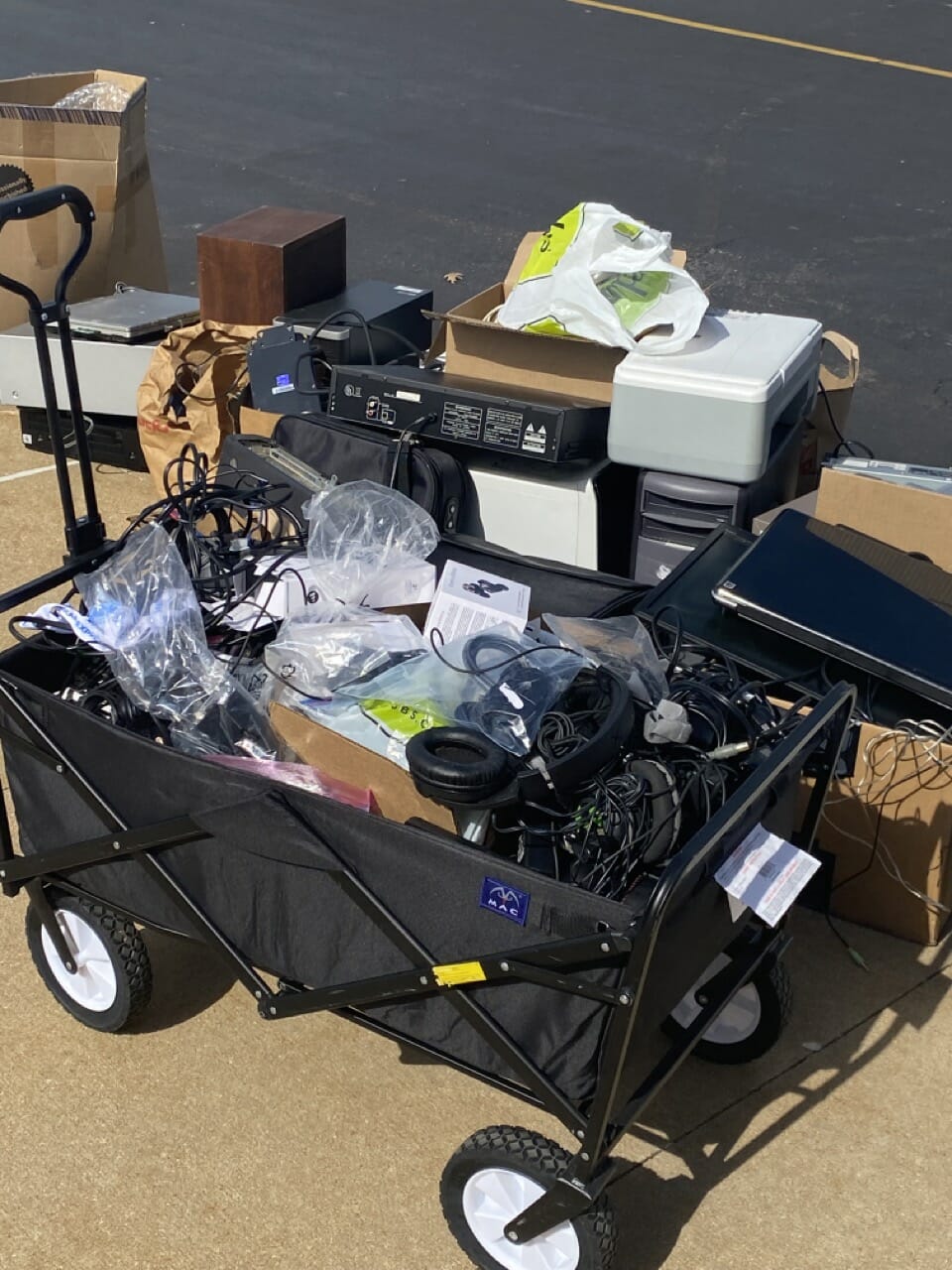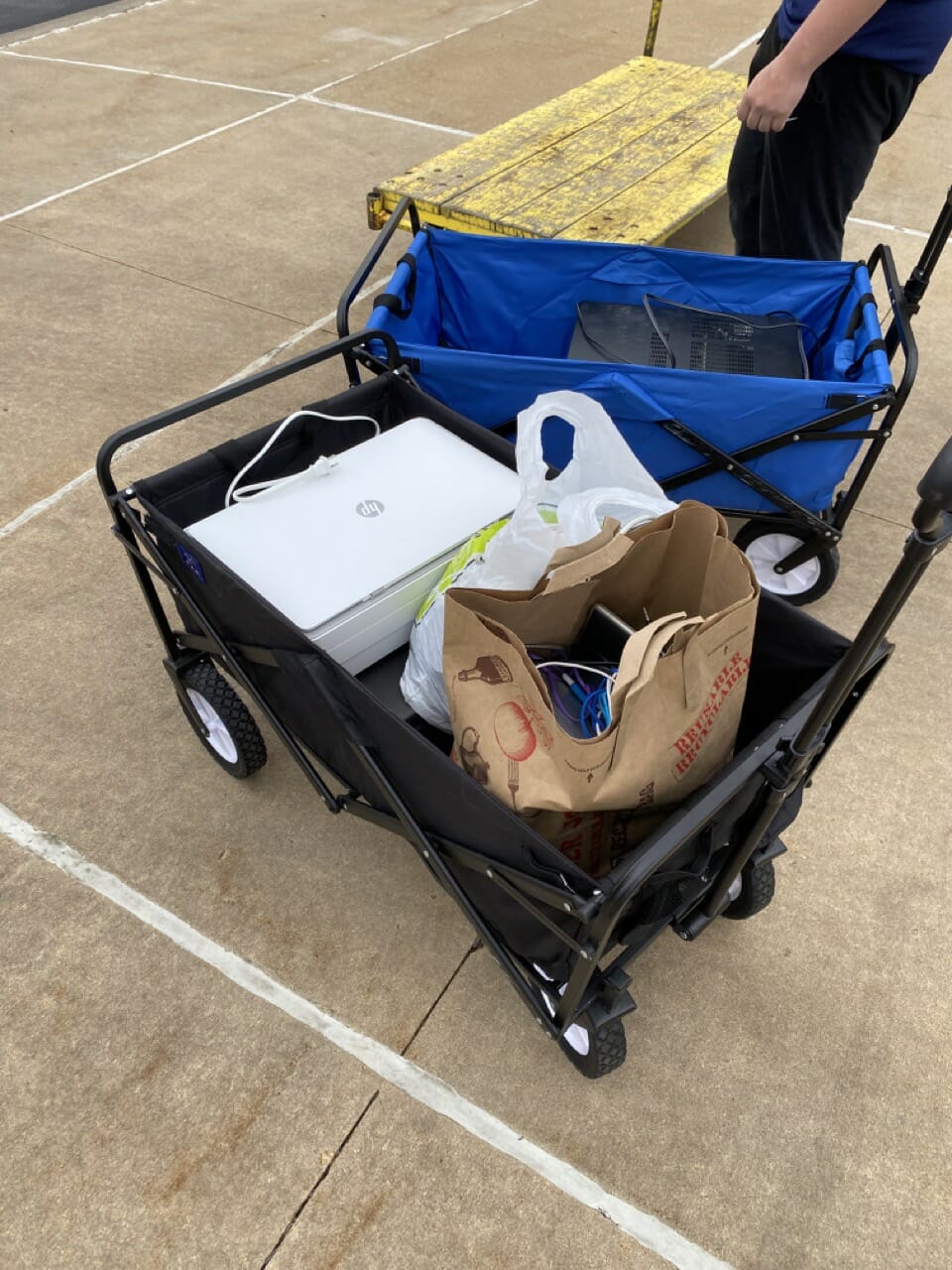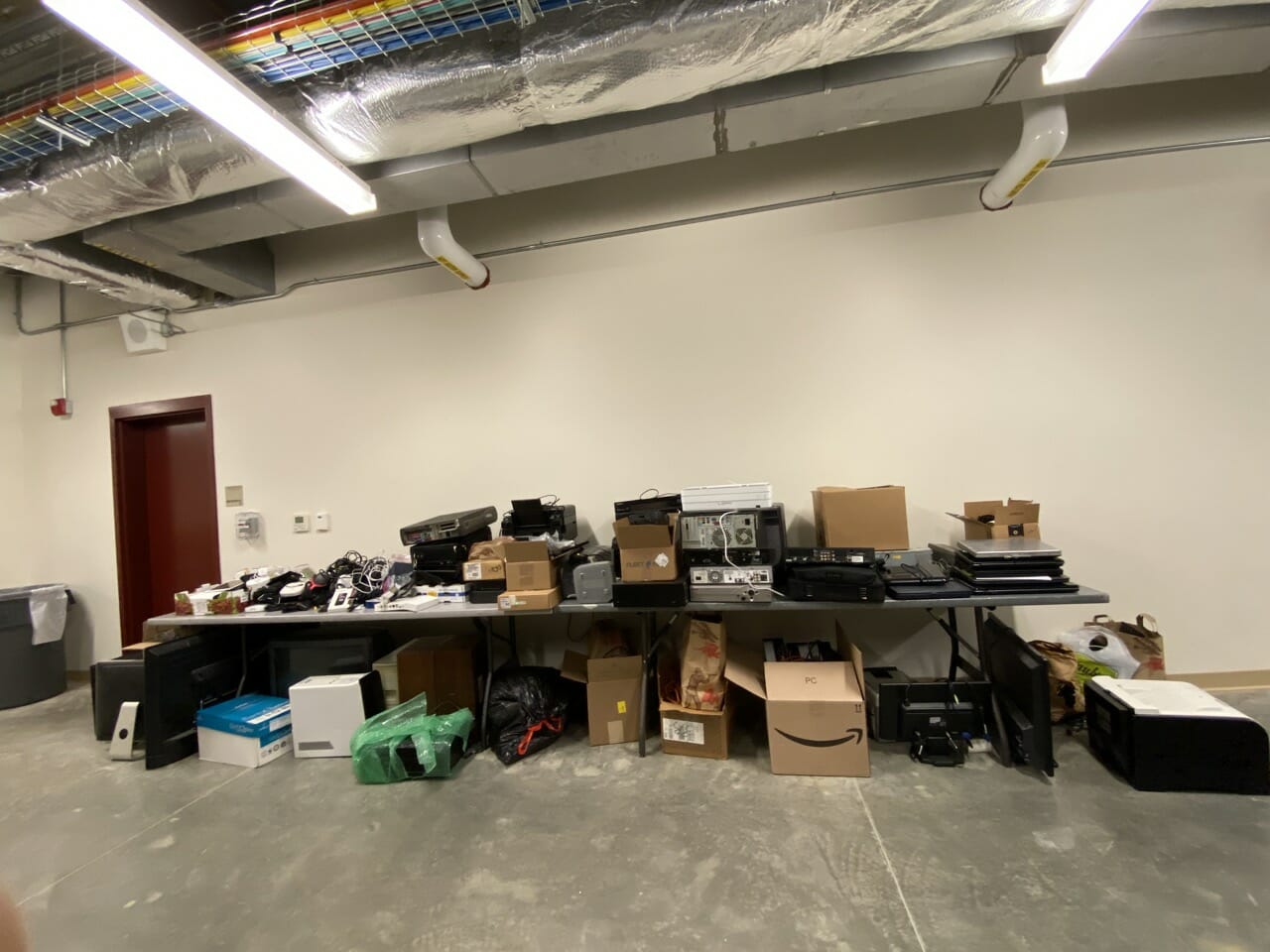Saivi Gadi ’25 and Kyle Sha ’23 are Community Service Committee representatives, and one of their projects this year is poised to become an annual tradition at MICDS: the electronics recycling drive. MICDS families were invited to visit campus last Sunday afternoon to drop off unused electronics for appropriate recycling. A group of students, along with Erin Hamill, Director of Upper School Community Service, met a steady stream of cars at the A Lot flagpole, offloading a variety of outdated and unused technology for storage before their recycling partner, Executive Personal Computers (EPC), could pick everything up this week.
«In our current digital age, electronics have gradually become an integral part of our daily lives. However, disposing of these devices can lead to significant environmental challenges, as they often contain hazardous chemicals that can harm the environment if not properly disposed of,» said Gadi. «Initially, I organized an e-waste drive in the Middle School at MICDS two years ago to raise awareness and promote safe disposal practices. Taking inspiration from this, there was also an e-waste drive organized in the Upper School a few weeks later by Kyle. This past Sunday, we successfully completed our second e-waste recycling drive in partnership with EPC, with a lot of participation from MICDS families! Moving forward, we plan to hold an electronic recycling drive every year in February to encourage proper disposal of old electronics and minimize the negative impact of e-waste on our environment.»
Gadi earned a blue ribbon at the St. Louis Science Fair two years ago for her project that researched e-waste and included her Middle School recycling drive. She learned that an average of 50 million tons of e-waste is produced each year worldwide, with approximately 70% of toxic waste in US landfills being e-waste. Simply disposing of e-waste in landfills has negative impacts on the environment, our health, and our communities. While electronics are composed of valuable and rare metals, they also contain numerous hazardous chemicals; one cell phone alone contains over 40! Chemicals like cadmium and brominated flame retardants present in e-waste are known to be carcinogenic. When e-waste is burnt in incinerators, these toxic chemicals can pollute the air, creating irreversible damage in ecosystems. The chemicals in e-waste can seep into groundwater and rivers, contaminating water sources and harming aquatic animals. Furthermore, taking apart and handling e-waste without proper safety measures can cause damage to the kidneys, immune system, and nervous system, and can increase the risk of cancer.
«For this e-waste drive, we partnered with EPC, a company that recycles and disposes of e-waste using the proper safety guidelines,» said Gadi. «First, EPC follows the National Association for Information Destruction (NAID) AAA-certified process of wiping the machines clean of any personal data. Once data has been wiped, the company tries to give the equipment a second life by donating devices to charity. If devices cannot be reused, they are broken down into raw materials, like aluminum, copper, glass, gold, iron, platinum, steel, and tin. Then, these materials are sent to processors to be refined and eventually turned into new goods. Additionally, EPC has world-class recycling facilities, which allows them to safely remove and keep toxic materials out of the environment.»
The team reports that MICDS families dropped off a variety of devices and gadgets, including old speakers, a tube TV, flip phones, DVD players, tablets, iPhones, cables and wires, monitors, computers, laptops, CPUs, printers, VCRs, headsets, and gaming consoles, and they estimate 20 to 25 families participated in the e-waste drive. They collected about five TVs, six printers, five full large boxes of miscellaneous small items and wires, and around 10 laptops. «We collected a lot of other stuff too—this is just a rough estimate!» reports Gadi.
Thanks to our students who coordinated this e-waste drive, to EPC for their partnership, and to all the families who participated by dropping off their unwanted electronics. As you upgrade your devices and clean out your clutter over the next year, please remember to recycle responsibly or start a box of donations for the next MICDS electronics recycling drive!
